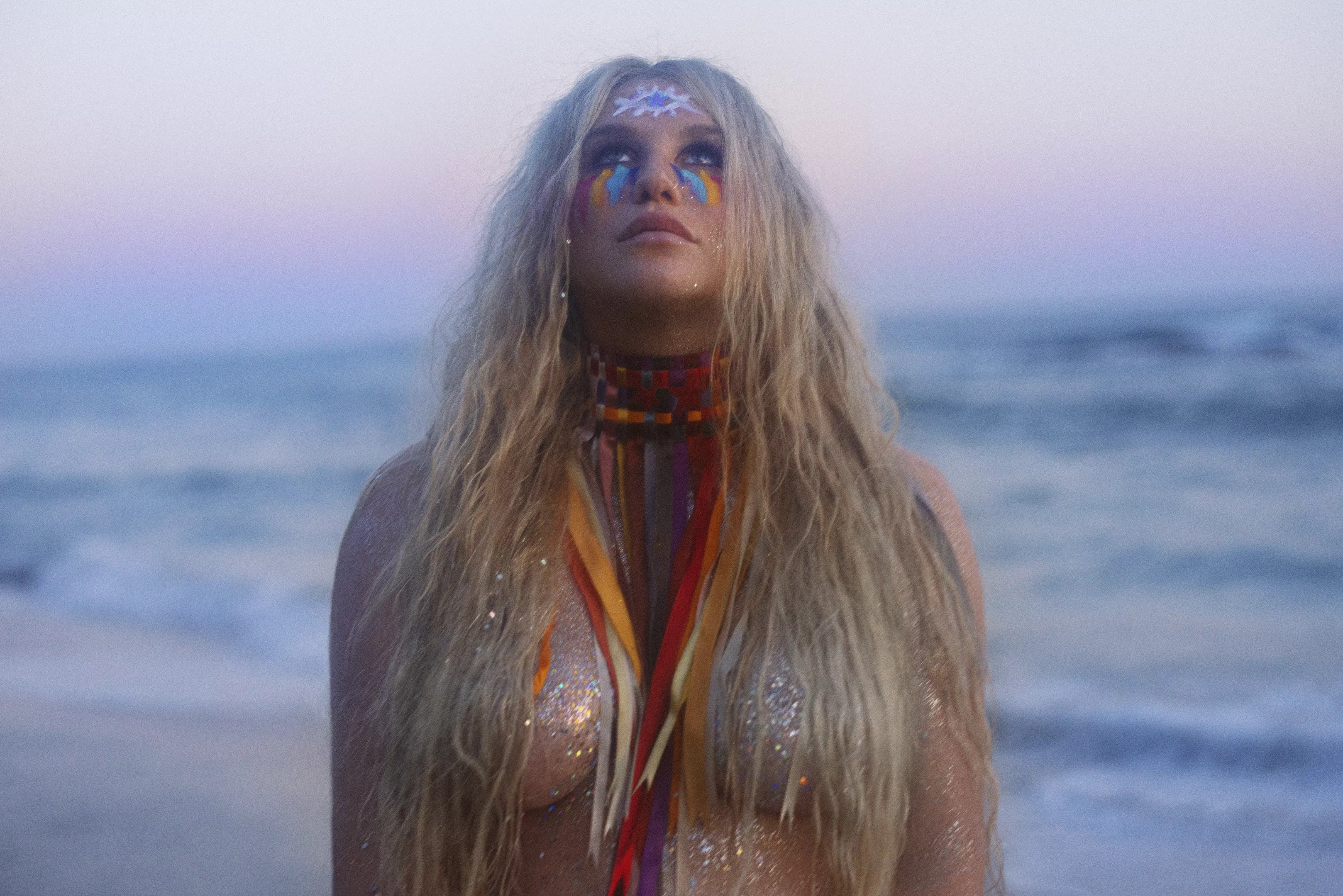
Photo by Olivia Bee

Audio By Carbonatix
Kesha and Macklemore have a lot in common. Think about it: They both strive to make socially meaningful music with high emotional impact but are best known for massively trivial pop hits (“Tik Tok” and “Thrift Shop,” respectively). Neither is what you’d call a genius voice of a generation, but both admirably attempt to put human faces on the social justice and sexual harassment issues roiling the nation.
So it makes sense they’d eventually collaborate. Kesha sings the hook on “The Good Old Days,” a song that cashes in on our nationwide nostalgia fetish by waxing poetic about, uh, the good old days. It appears on Gemini, Macklemore’s first solo album since splitting with longtime collaborator Ryan Lewis, and it offers more of the honest – but hardly profound – sentiments that have become Macklemore’s calling card. He raps, “I’d be laying in my bed and dream about what I’d become/Couldn’t wait to get older, couldn’t wait to be someone/Now that I’m here, wishing I was still young.” Like many of Macklemore’s stonefaced-serious songs, “The Good Old Days” is kind of a laborious
Indeed, the two artists’ popularity isn’t really in question – fans have come out by the tens of thousands to see them. The Adventures of Kesha & Macklemore will roll through American Airlines Arena this Saturday, August 4, to support Rainbow, Kesha’s third studio album, as well as Gemini. Fittingly, $1 from each ticket purchase will benefit a charity organization. Kesha is donating her share to the anti-sexual assault organization Rape, Abuse & Incest National Network. Macklemore is contributing to the social and racial justice organization Plus1.
Why do they so closely identify with these causes? Kesha has been embroiled in a series of high-profile lawsuits with her former producer, Lukasz “Dr. Luke” Gottwald, whom she has accused of sexual and emotional abuse. In fact, she was legally barred from issuing new music before the debut of Rainbow and still owes two albums to the record label she’s fighting. That Rainbow was released at all is impressive – even
After all, her biggest hit to date remains the 2010 single “Tik Tok,” a prime example of the gaudy, oversexed, club-pleasing electro-pop so pervasive at the time. The song actually contains the lyrics “I’m talking about everybody getting crunk, crunk/Boys tried to touch my junk, junk.”
Looking back at that song is a reminder: Kesha’s potency as an icon of the #MeToo movement is greater because she was groomed by Dr. Luke to be a sex symbol, but she developed into a far more substantial artist. The legal battle with her former producer made clear how much pressure she was under to look the part of a pop star. At one point, Dr. Luke reportedly complained that she couldn’t stick to her assigned diet, adding, “A-list songwriters and producers are reluctant to give Kesha their songs because of her weight.” Yeah, gross.
Macklemore, on the other hand, has cultivated a reputation as something of a social justice warrior, though his messages are mostly noncontroversial and highly digestible. For example, his piano-driven hit “Same Love” didn’t necessarily break any new ground on LGBTQ rights by proclaiming, “The right-wing conservatives think it’s a decision/And you can be cured with some treatment and religion,” but for millions of Americans, it was validation on pop radio. In any case, his messages are effective not because they are particularly clever, but because they are clear. It helps that his enunciation is so concise that listening to his raps is as easy as following the bouncing ball. “Same Love” is simple and serves its purpose, and also amounts to his most significant achievement to date (aside from, of course, poppin’ tags).
Ironically, his album endorsing equal rights and tolerance became a target of widespread vitriol in 2014, when Macklemore and Lewis’ The Heist defeated Kendrick Lamar’s Good Kid,
Kesha and Macklemore’s concert in Miami will be a big-budget affair complete with costume changes, glitzy set design, and maybe even a UFO sighting, but it’s worth remembering the contexts in which both artists are performing – and what they have in common. Either way, it will be a spectacle.
The downside: There’s, like, no way Kesha will leave “Tik Tok” off her set list.
The Adventures of Kesha & Macklemore. 7 p.m. Saturday, August 4, at American Airlines Arena, 601 Biscayne Blvd., Miami; aaarena.com. Tickets cost $8 to $122 via ticketmaster.com.